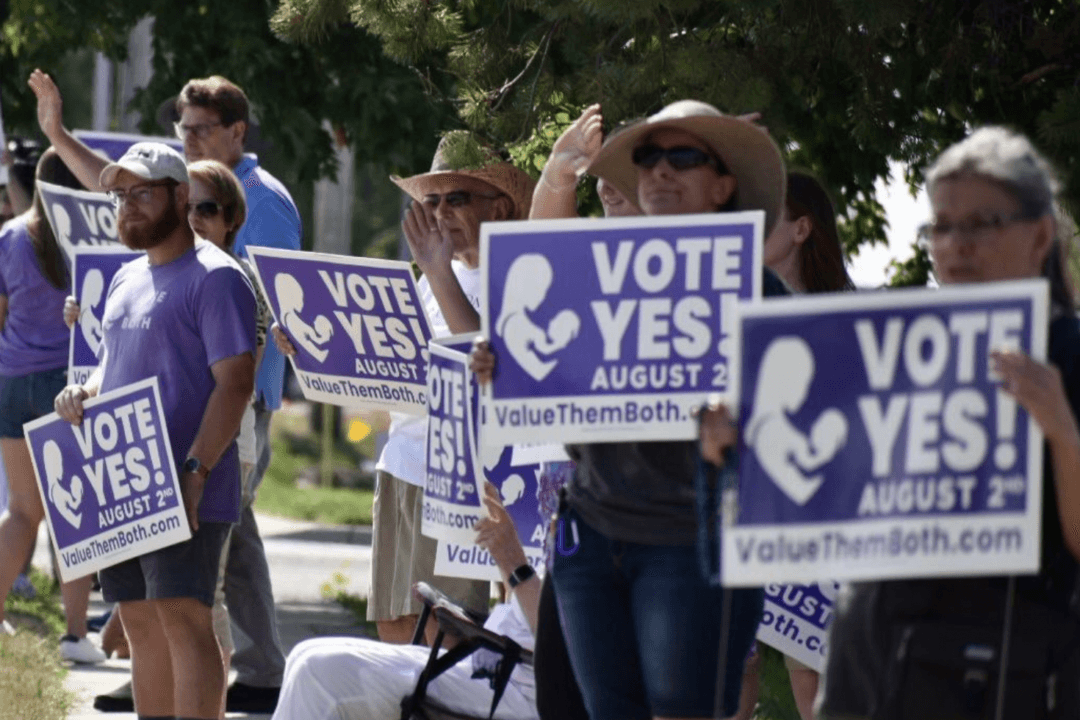The Kansas Supreme Court appeared unmoved on March 27 by Kansas Solicitor General Tony Powell’s arguments that its 2019 ruling recognizing abortion as a “fundamental right” under the Kansas Constitution should be overturned.
Powell spent Monday morning defending two state abortion laws before the court—a 2015 ban on second-trimester dismemberment abortions and a 2011 law that regulates abortion providers more strictly than other medical providers. Both laws have been blocked from enforcement due to legal challenges.





